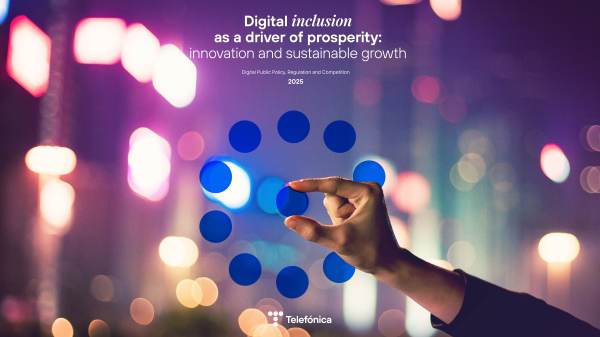 Chema Alonso
Chema Alonso
Chief Data Officer, Telefonica.
 As mentioned in a previous post, we have launched a specific microsite dealing with studies on regulatory economics.
As mentioned in a previous post, we have launched a specific microsite dealing with studies on regulatory economics.
Our first Regulatory Economics Brief has been written by Dr. Fernando Herrera-González and deals with the issue of Leveling the Playing Field between telecommunication operators and Over-The-Top (OTT) services providers. You can have a look at it here.
There is currently a strong debate in the EU about the need for a level playing field between telco operators and Over-the-Top service providers, i.e. agents that offer telecommunication services over Internet connectivity, as Skype or WhatsApp.
Telco operators complain about OTTs not having to comply with the EU’s strict and extensive regulation on issues such as user rights, antitrust, security, net neutrality or Significant Market Power (SMP) obligations. It is fair to consider that if we offer the same services, the same rules should apply.
At first sight, there are two basic ways to achieve a level playing field:
1) Remove regulation on the telco sector, so that both OTTs and telco operators are unregulated, or
2) regulate OTTs in the same way as telco services.
So, what kind of level playing field would most benefit consumers? In order to answer this question, the economic theories of value, price and cost are applied to explain how value is allocated among activities in the ICT value chain, both without and with regulation.
The analysis provides the following insights, for the case in which one activity in the value chain is regulated, but not the rest:
1) A bigger share of the final value flows to unregulated activities, than otherwise.
2) Productive factors required to perform the regulated activity lose value.
3) The production of the regulated good may become unsustainable.
From that, it is clear that the lack of LPF between telco and OTTs has two basic effects:
1) Transfer of wealth from telco operators to OTT providers, and
2) Possible unsustainability of the regulated activities and, in consequence, of the whole value chain.
This insight should be considered when deciding how to achieve the desired level playing field between telco operators and OTTs. Both options above will eliminate the transfer of wealth across the activities in the value chain, but only the first option is able to stop the second effect – value chain unsustainability. In other words, if the LPF is achieved through more regulation, telco operators would still lose value, not to other agents in the Internet sector, but rather to other completely different and possibly unconnected sectors. And OTTs would of course lose value.
In sum, from an economic theory perspective, the only level playing field compatible with telco, OTTs, and consumer interest in general is the unregulated level playing field.
The TechPolicyBlog of the American Enterprise Institute (AEI), one of the top think-tanks worldwide that deals with telecommunications policy and regulation has mentioned our study in its Blog. You can see it here.














